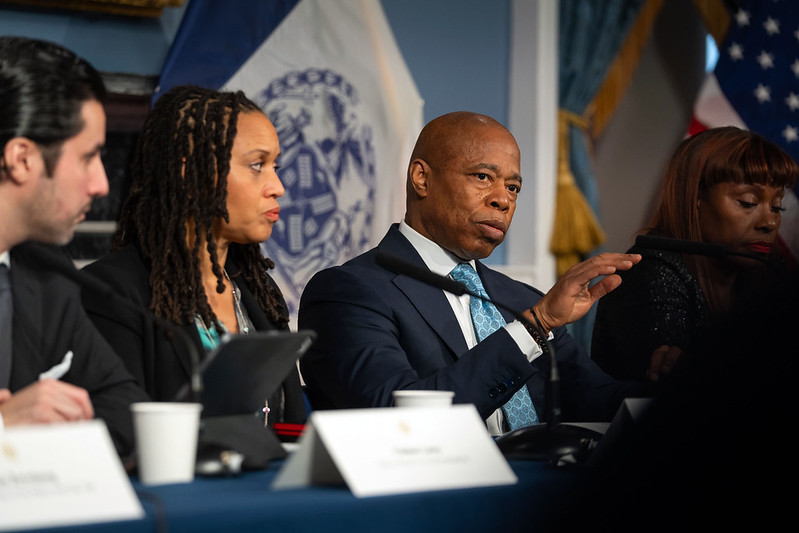Elie Wiesel, the Nobel Peace Prize winner, bore witness for all of Queens in his mission to teach the world about the horrors of the Holocaust.
A teenage survivor of the Buchenwald concentration camp, Wiesel embarked on a lifelong journey to awaken the conscience of millions to the evils that led to the destruction of 6 million Jews in Europe at the hands of Adolf Hilter’s Nazi killing machine. He repeatedly cautioned that we must never forget or else history could repeat itself.
His message had special resonance in Queens, home to many Holocaust survivors, although their numbers are shrinking as the years march on. The Kupferberg Holocaust Center at Queensborough Community College in Bayside uses the lessons of the Holocaust to make the next generations aware that racism and prejudice can lead to genocide in places such as Rwanda.
In one exercise, the center has drawn on the diversity of the borough by assigning Asian students at Queensborough to interview Holocaust survivors so that the subjects’ stories can be preserved. In another, so-called Comfort Women from South Korea have visited the center to describe their ordeal as young sex slaves abducted by the Japanese to service their troops during World War II.
“And when the last survivor is gone, who will tell of the Holocaust?” the center asks at the top of its webpage, echoing Wiesel’s greatest fear.
Wiesel, who died in Manhattan July 3 at 87, left an indelible mark as the chronicler of what happened in Germany when a nation lost its humanity. His autobiographical novel “Night,” translated from the German in 1960, broke the silence that followed the war for many years and forced the world to listen.
“We lost a powerful voice for tolerance, acceptance and peace with the passing of Elie Wiesel,” Queens Assemblyman David Weprin said in a statement. “By sharing his experience of the Holocaust with the world, Elie Wiesel ensured that we will never forget one of the darkest chapters in our collective history.”
Congresswoman Carolyn Maloney said Wiesel, as a 16-year-old inmate at Buchenwald with A-7713 tattooed on his arm, “experienced the worst that humanity is capable of and emerged from that as a model of the best humankind can aspire to.”
In his acceptance speech for the Nobel Peace Prize in Oslo in 1986, Wiesel talked about what he had done with his life as a survivor:
“That I have tried to keep memory alive, that I have tried to fight those who would forget. Because if we forget, we are guilty, we are accomplices.”































